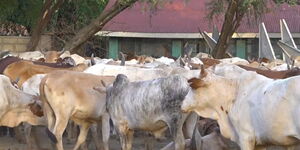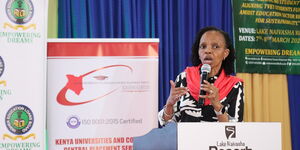The National Environment Management Authority (NEMA) has re-introduced the contested Environmental Impact Assessment (EIA) processing and monitoring fees for companies seeking to undertake projects in the country.
In a public notice seen by Kenyans.co.ke, NEMA stated that the government reinstated the fees effective June 1 in order to safeguard the environment against pollution.
The new development will see companies pay 0.1 per cent of their total project cost, with NEMA setting Ksh10,000 as the minimum fee.
"The fifth schedule of Environmental (Impact Assessment and Audit) Regulations 2003 as reviewed vide Gazette Notice No. 13211 of 2013 provides for the Environment Institute of Kenya (EIA) processing and monitoring fee, graded fees for registration and licensing of EIA experts among other processing fees," read the statement in part.
Other fees that were reinstated are the Strategic Environment Assessment processing and monitoring fees and the Environmental Assessment Experts registration and licensing fees.
All payments will be made online through the eCitizen NEMA licensing portal, Ksh3,000 and an annual practising licence of Ksh5,000. In addition, companies are required to unveil a certified Bill of Quantities (BQ) indicating the proposed project cost.
Introduced as one of the mandates of NEMA, EIA involves the critical examination of the positive and negative effects of a project on the environment and the people.
It further identifies measures to maximize the positive while mitigating adverse impacts.
Fees related to EIA include registration of associate experts (Ksh2,000 and annual practising licence Ksh3,000) and firm of experts (Ksh5,000 and annual practising licence Ksh20,000).
Companies will also pay Ksh5,000 for licence surrender, transfer or variation. Notably, the EIA and expert fees had been scrapped in January and February 2017 respectively to reduce the operations costs of businesses.
"In order to facilitate the ease of doing business in Kenya, NEMA has scrapped applications and annual fees for all categories - associates, lead and firms - with immediate effect," read the statement in part.
However, experts and companies they work for were required to remain members of the Environment Institute of Kenya. Nema stated that through the institute, it would monitor industry practitioners and weed out quacks and rogue firms.
The licensing was among the means of income generation by the authority, running into millions every financial year.












